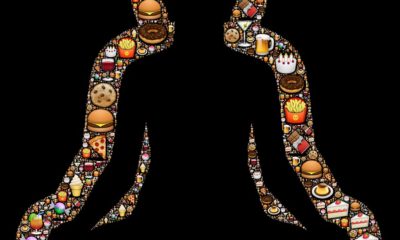Child Development
Why Nutrition is Important During Pregnancy?
During pregnancy, the health and nutrition of the mother can directly influence the health of the baby, so these are aspects that should be promoted even before pregnancy! And there are several questions: “Can diet influence fertility?”; “What care should be taken with food during gestation?”; “When should I start and stop breastfeeding my baby?”; “How many times should the baby feed each day?”; “When can my child start eating?”; … Many doubts and insecurities appear at this moment and, knowing that the maternal-infant group needs particular care, the specialist nutritionist is a key player in this process.
We know that Nutrition, because it involves something as essential as the food we consume, needs competent professionals who have a passion for what they do, dealing with the audience that best fits their profile.
How can a nutritionist help with some common pregnancy symptoms?
Some situations are common during pregnancy, and the nutritionist can identify them and take appropriate nutritional conduits to eliminate or ameliorate the symptoms.
The most characteristic and reported by women during pregnancy are nausea and vomiting, which are frequent in the first trimester of pregnancy. This discomfort can occur due to hormonal changes and increases the capacity of smell, making the woman more sensitive to certain types of odors. The organism of the pregnant woman is so sensational, that this increase of olfactory capacity is an instinct of defense since the pregnant woman can identify already the foods that can be spoiled, failing to consume them. Some ducts can be taken to ameliorate symptoms such as making small, fractionated and dry meals, consuming low-fat foods and crackers in the morning, which can help mitigate these problems. Ideally, a woman should identify foods that reduce her sense of nausea and vomiting but remember that no excess is beneficial. Normally, as of the 14th week, the mood to feed normally returns to what it was before and an increase in appetite may occur.
Another common symptom is heartburn, which occurs due to the pressure of the uterus on the stomach: relaxation of the lower esophageal sphincter (region that forms the entrance to the stomach) causes, shortly after the consumption of food, the ” Cake “back into the esophagus mixed with hydrochloric acid, leading to the burning sensation. The basic guidelines for improving these symptoms are to eat and chew quietly, avoid long periods of fasting, fractionate meals and avoid large amounts of food.
It is worth remembering that these are general behaviors and will not always resolve or be appropriate depending on the pregnant woman. As we talked about, food that reduces the nausea of a pregnant woman, for example, can exacerbate this symptom in another. Therefore, individualized nutritional care is required.

Breastfeeding and Baby Feeding
After the birth of the baby comes the dreamed moment of many moms: breastfeeding. The nutritionist and other health professionals should encourage and guide exclusive breastfeeding by the sixth month of age and supplemented up to two years or more. Let’s talk at other times about mothers who find it difficult to breastfeed and what can be done in these cases.
By the sixth month of age, exclusive and on-demand breast milk can meet all the baby’s needs. The onset of feeding before this period should be discouraged, as it may lead to episodes of diarrhea, malnutrition, less absorption of nutrients and shorter breastfeeding, compromising the health of the baby. Breast milk is important because it prevents infant deaths, diarrhea, and respiratory infection reduces the risk of allergies, hypertension, high cholesterol, diabetes, and obesity, and has a positive effect on cognitive development … (there are many! ). We must also emphasize the development of stronger emotional bonds between mother and child through breastfeeding.
As of the sixth month, the baby is already able to start complementary feeding, since it has already developed the necessary reflexes for swallowing, besides being an important moment to stimulate healthy eating and food preference, creating a habit that can accompany it To adulthood. It is worth remembering that the supply of breast milk must be maintained (in fact, it is recommended to breastfeed until the age of two years or more) since it continues to be an excellent source of nutrients. It is important to note that during this period it is very important to follow a nutritionist to correctly orient the steps of introducing food according to the individualities of the baby and the mother.
Contraindications during breastfeeding
Is the infant (the mother who breastfeeds, also called the “nurse”) in need of some care? Ever. The mother should be attentive to her eating, looking for healthy eating habits and life, avoiding or, preferably, eliminating the use of some substances that can interfere in breast milk.
Among the substances are: nicotine, which may have a reduction effect on milk production and cause intoxication in the child; Alcohol in large quantities, which has the ability to inhibit the descent of milk and trigger in psychological and motor retardation of the child; And caffeine, which has the potential to cause difficulties in the child’s sleep and hyperactivity. Therefore, the guideline is for these substances to be withdrawn while you are breastfeeding!
Despite the many benefits of breast milk, in some cases, breastfeeding is contraindicated, as it may be harmful in other respects. We highlight here the cases of infants with galactosemias (difficulty in metabolizing galactose) and of mothers who have untreated active tuberculosis, abusive drugs or are seropositive for human immunodeficiency virus (HIV). These and other cases should be Evaluated and discussed with the doctor, and other health professionals specialized in the area.
Consequences of inadequate nutrition and the role of maternal and child nutrition
The importance of the nutritionist is not only in the certainty that good nutrition will result in a healthier gestation, but also in the fact that an inappropriate habit in that sense can have serious consequences on the health of the mother and the baby. I note here the iron deficiency as one of the major concerns in childhood, which is characterized by iron deficiency anemia. Iron deficiency can impair the baby’s normal growth and development, as well as learning ability, delaying the development of motor coordination and language, and causing behavioral changes in the child. These consequences can last throughout the life of the individual when not treated early.
Therefore, the nutritionist becomes a key piece in this period. Mothers should be encouraged to promote exclusive breastfeeding for the sixth month since breast milk alone can prevent anemia and other complications at this stage (in addition to nourishing the baby completely, as we have already mentioned). From this period, the nutritionist has the important role of guiding the beginning of complementary feeding of the baby adequately and healthily, with food appropriate for each stage of life and in an individualized way, promoting the baby’s health and preventing the possible deficiency of Iron and other nutrients.
But, as we have seen, this professional’s work is even more comprehensive: the nutritionist’s specialization in the maternal-infant group allows the development of skills and capacities on care and nutritional care for women of childbearing age, pregnant women, Breastfeeding mothers), infants (the baby who is breastfed), preschoolers, school stage, and adolescents. All this is supported by scientific knowledge for the appropriate and individualized nutritional approach of the client and can cover the influence of nutrition on the fertility of women and men (in the health of the pregnant / post-gestation, generation, growth and development of the baby) to The phase of adolescence.
There are those who say that “nutritionist only diets,” however Nutrition goes much further. The nutritionist is the professional trained to promote health through a healthy, adequate and individualized diet. And nothing more special than having the privilege of providing this treatment in the formation of a new life, contributing to it having a healthy history in every way.
Do not forget to share your experience in the subject and I am at your disposal should you have any questions.




